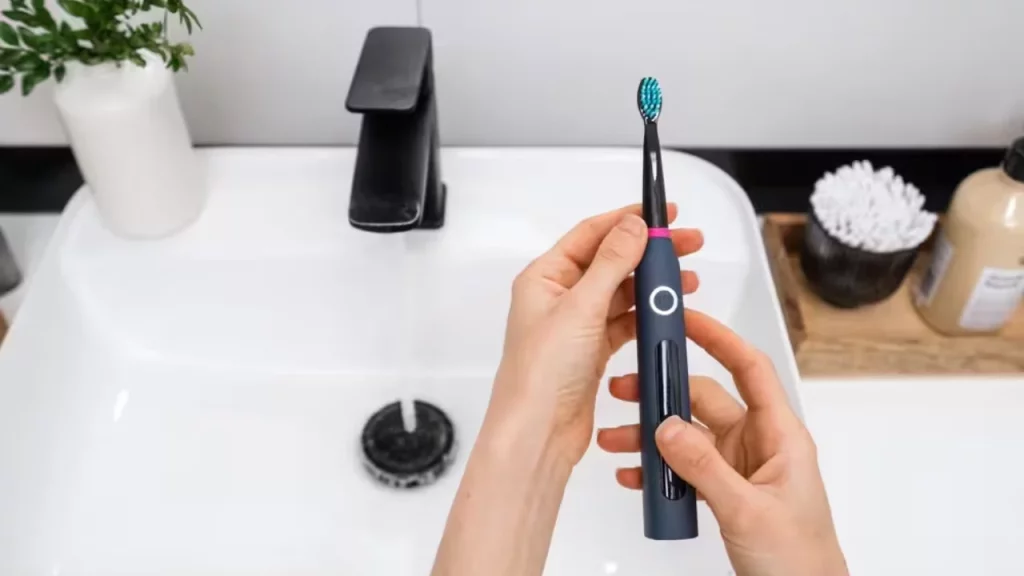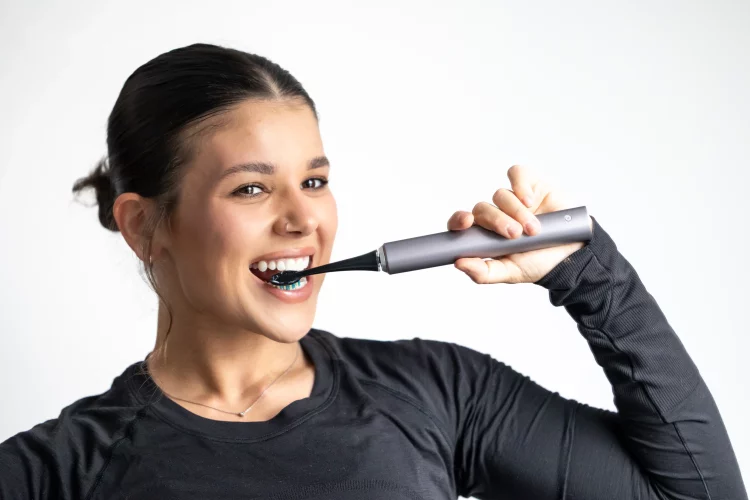The Unlikely Link Between Oral Health and Emotional Exhaustion
Burnout has traditionally been identified through psychological assessments, workplace performance metrics, and physiological signals like sleep disruption or hormonal imbalance. But what if a more subtle and accessible biomarker could offer an early warning—one you use every morning and night? Enter the smart toothbrush. As biometric tracking becomes increasingly woven into everyday devices, researchers and technologists are turning their attention to the mouth as a surprisingly rich source of data. Recent studies suggest that the oral microbiome—the delicate ecosystem of bacteria and enzymes in your saliva—may hold clues about chronic stress, inflammation, and even the onset of burnout. Could a toothbrush that monitors not just plaque but stress-induced microbial shifts become an ally in preventing emotional collapse?
Understanding Burnout Beyond the Brain
Burnout is no longer seen purely as a psychological phenomenon. It is increasingly understood as a multisystem breakdown, involving dysregulation of the hypothalamic-pituitary-adrenal (HPA) axis, low-grade inflammation, and disruptions to the immune system. Chronic stress depletes energy, impairs concentration, and increases susceptibility to illness—but it also quietly alters the composition of the mouth’s bacterial community. A 2023 study published in Frontiers in Immunology found that individuals experiencing chronic workplace stress had distinct changes in oral microbial balance, including a rise in inflammatory bacteria. These microbes can interact with the immune system through salivary glands, subtly influencing systemic inflammation and cortisol levels, making the mouth not only a mirror of overall health but a potential sentinel for burnout.
How the Oral Microbiome Reflects Stress
The oral microbiome acts like a sentinel of the body’s internal state. In the presence of chronic stress, salivary cortisol levels increase, pH levels shift, and the bacterial ecosystem changes. Elevated cortisol in saliva not only affects oral immunity but also promotes the growth of harmful bacteria like Porphyromonas gingivalis and Fusobacterium nucleatum, which have been linked to both periodontal disease and systemic inflammation. These microbial imbalances don’t just result in bad breath or bleeding gums—they could precede more significant physiological shifts that align with emotional exhaustion. As scientists map correlations between microbial signatures and stress-related disorders, the toothbrush—already in intimate contact with the mouth—presents a logical site for passive, frequent data collection.
The Smart Toothbrush Revolution: What’s Already Here
The dental technology landscape has already undergone a quiet but powerful transformation. Smart toothbrushes like those from Oral-B, Colgate, and Sonicare use pressure sensors, Bluetooth connectivity, and real-time brushing feedback. These devices help users improve oral hygiene habits, but the latest generation is experimenting with saliva analysis and integrated biosensors. Some prototypes in development aim to analyze enzymatic activity, pH levels, and even bacterial metabolites directly from the toothbrush bristles. The goal? Early detection of not just cavities, but conditions such as type 2 diabetes, cardiovascular disease—and potentially, stress-induced burnout. These devices would effectively combine dentistry, mental health, and bioinformatics in a single morning routine.
From Enzymes to Emotions: The Data Leap
What makes this integration truly groundbreaking is the shift from mechanical to biological data. Imagine a toothbrush that not only reminds you to floss but alerts you to elevated salivary alpha-amylase—a well-established marker of stress. Or one that syncs with your wellness app to correlate brushing patterns with sleep quality, mood, and energy levels. Machine learning algorithms could eventually detect subtle trends—like how microbial shifts, elevated oral inflammation, or irregular brushing rhythms correspond with early signs of burnout, long before you consciously feel overwhelmed. These insights could then trigger preventative nudges: reminders to rest, hydrate, breathe, or seek support. In this way, dental care becomes emotional care.
Next-Gen Toothbrush Tech: On the Horizon
Several startups and research labs are working on biosensing toothbrush technology. One Japanese company has developed a prototype capable of detecting lactate and glucose in saliva. Meanwhile, university teams in the U.S. and Europe are exploring nano-biosensors embedded in brush heads to track microbial signatures. Some models include UV light sterilization combined with phototherapy, potentially delivering both data collection and therapeutic benefit. The next evolution could involve toothbrushes with swappable biosensing cartridges, AI-integrated mobile platforms, or direct integration into healthcare systems via telehealth. If these tools can accurately detect emotional burnout markers, they may soon be as essential to mental health maintenance as your fitness tracker is to your workout.
Privacy and Consent: Who Owns Your Saliva Data?
With great data comes great responsibility. As toothbrushes become more intelligent, they also become data-rich, raising urgent questions about privacy. Who owns the health data collected from your mouth? Could it be sold to insurers, employers, or data brokers? In 2024, proposed legislation in the EU and California began outlining stricter consent frameworks for consumer health tech, but enforcement remains unclear. Many smart device users remain unaware of how granular and personally identifiable their biometric data has become. Stress is deeply personal—often tied to work, family, and mental health. If your toothbrush knows you’re burned out before you do, it must also respect your boundaries. Future devices will need robust encryption, user-controlled data sharing, and transparent privacy policies to build trust.

Will Users Trust a Mental Health Toothbrush?
Adoption hinges not just on technological capability but emotional resonance. Will users accept a toothbrush that “knows too much”? Or could it feel intrusive, judgmental, or anxiety-inducing? On the other hand, people who dislike traditional mental health interventions might embrace a low-friction tool embedded in an existing habit. Much like how fitness trackers have normalized heart rate and sleep data, a toothbrush could quietly destigmatize burnout prevention. For this to happen, design will be key: gentle alerts, actionable insights, and no shaming. The toothbrush must feel like a coach, not a critic. Done right, it could become a quiet ally in the fight against modern exhaustion.
How to Interpret Your Oral Signals at Home
While commercial smart toothbrushes with advanced stress tracking aren’t widely available yet, you can still begin observing your own oral-stress connection. Notice how your gums feel after a high-stress day. Are you clenching your jaw more? Is your mouth drier than usual? Are you brushing harder than necessary? These signs may be your body’s early warning signals. You can also try integrating oral rituals into your stress care routine: use a cooling peppermint rinse after difficult meetings, massage your jaw before bed, or simply slow down the brushing process to turn it into a two-minute mindfulness practice. In the future, these rituals may be augmented by AI—but they start with your own awareness.
Bridging Dental and Mental Health in Clinical Settings
Some progressive dental practices are already incorporating stress screening into checkups, asking patients about sleep, emotional wellbeing, and life changes. This integrative approach could one day include microbial screening for burnout risk, especially in high-pressure professions. Mental health clinicians, too, may one day receive oral health reports as part of a broader biometric dashboard. This cross-specialty collaboration would represent a shift away from compartmentalized care toward truly whole-person health. And at the center of this evolution may sit an unassuming but powerful object: the toothbrush.
What the Future Holds: AI-Powered Oral Wellness
Within the next decade, we may see toothbrushes that not only monitor and report data but proactively offer personalized wellness support. “You haven’t been brushing as long this week—are you feeling fatigued?” “Your saliva pH is low again—consider taking a break.” These AI-powered prompts could also interface with meditation apps, hydration reminders, or even HR departments in high-stress workplaces (with consent). As burnout continues to surge worldwide, especially among younger workers and caregivers, these devices could become an important frontline defense—one bristle at a time.
Conclusion: Brushing Toward Burnout Prevention
The mouth is a portal—not just for food and speech but for emotional expression and biological intelligence. As technology continues to blur the lines between body, mind, and machine, everyday tools like the toothbrush may become surprising allies in the quest for mental wellbeing. Whether it’s detecting microbial imbalances, monitoring stress enzymes, or simply encouraging reflection during a mundane routine, the smart toothbrush has the potential to reframe oral hygiene as emotional hygiene. And in a world running dangerously close to burnout, every small moment of insight counts.











































